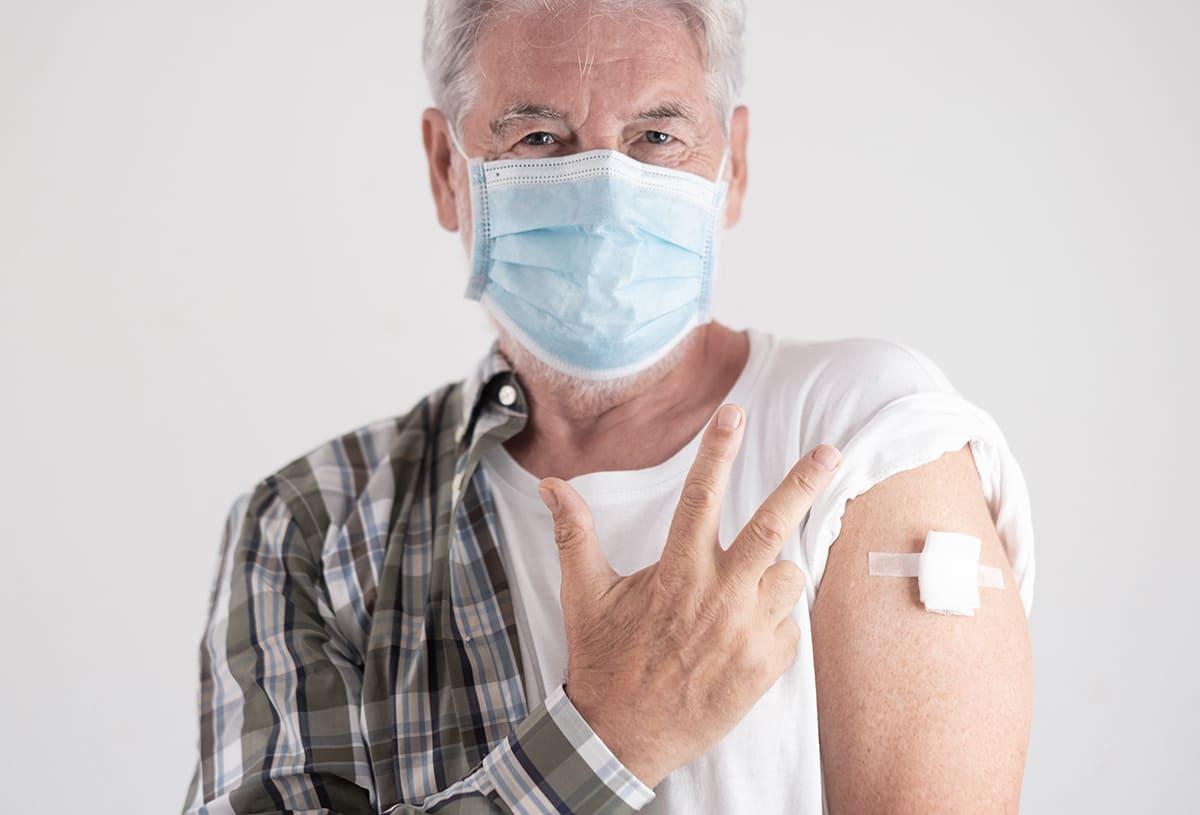Vaccines enhance the body’s immunity, especially in aging people who now are facing a decline in their ability to fight diseases, and are prone to infections. Once infected, the symptoms may become more severe than expected. Therefore, preventive vaccination is critical, and senior citizens should not ignore or become complacent about it.
People in the advanced age group should pay attention to the following 5 vaccines and complete them as recommended by your doctors.
1) Influenza Vaccine
Influenza is common across all age groups. It comes from influenza virus that infects the upper respiratory tract. The symptoms are similar to the common cold, except for coughing, sore throat, runny nose, headache, muscle or body aches, and sometimes possible bronchitis and pneumonia. So, if an elderly person suffers from influenza, the symptoms may be severe and come with other complications. Hospitalization may then be needed. Especially if they are already suffering from other ailments – such as heart disease, diabetes, asthma, emphysema, etc. – it will become even more critical that they receive influenza vaccination regularly every year, to prevent the sickness and its severe symptoms.
2) Hepatitis B Vaccine
Hepatitis B is common among the Thai population. It is caused by inflammation of cells in the liver that have been infected by the hepatitis B virus. It can be contracted by infected blood and bodily fluid. Common symptoms include fatigue, low fever, nausea, vomiting, jaundice, abdominal pain below right ribcage, and darken urine. The danger of this disease is, if it has become chronic, the condition can lead to cirrhosis of the liver and, subsequently, liver cancer. So, vaccination against hepatitis B is important, as it not only offer protection from the disease, but also prevent long term complications if the person is already infected with the virus. The vaccine requires a total of 3 doses: the first and second vaccinations are 1 to 2 months apart, while the third one is 6 months from the first.
3) Pneumonia Vaccine
Pneumonia or inflammation of the lungs is caused by infection of the lower respiratory tract – usually from bacteria or viruses. The symptoms include coughing with phlegm, short of breaths, fatigue, high fever, chest pain and congestion, nausea, and vomiting. Severity of the symptoms varies, but for the elderlies they are more serious as their immunity system is already in a decline. So, there is a risk of complications from lungs inflammation – such as septicemia or respiratory failure – which will impede the treatment and become life-threatening. Therefore, vaccination against pneumonia is recommended, to raise the immunity capability and reduce severity of the symptoms if infected.

4) Shingles Vaccine
Shingles comes from the same type of virus that triggers chickenpox. It causes inflammation of the nerves, leading to burning pain and rashes along the nervous system – often found on the side of the torso near the hip or below the ribcage areas. In elderly people, the symptoms can be severe, and the infection can spread as the person gets even older. It can be painful along the infected nerves, and the soreness can interfere with normal daily life for months and years – leading to a lack of sleep and rest, as well as emotional stress. Therefore, it is recommended that one receive vaccination to prevent shingles and its side-effects, while also reducing the risk of reinfection.
5) Diphtheria, Tetanus, and Pertussis (DTaP) Vaccine
Diphtheria is caused by bacteria that infect the mucous membranes of the nose and throat. The symptoms include enlarged lymph nodes in the neck, high fever, sore throat, difficulty swallowing and breathing. As for tetanus, it is an infection by bacteria that severely impacts the nervous system. If it is not treated promptly, it can lead to complications that is also life-threatening. Finally, pertussis, or whopping cough, is caused by bacteria in the respiratory system. The symptoms are generally similar to a common cold, but with prolonged severe coughing fits that lead to fatigue. In a serious case, it can be fatal. Therefore, DTaP vaccination is vital for elderly people. The dosage must be completed as prescribed, to ensure the highest effectiveness.
As one reaches an advanced age, or has a member of the family in this age group, it is imperative not to ignore these preventive vaccinations. Because they not only prevent the diseases, but also mitigate their severity if infected – all leading to a good quality of life in the long run.

